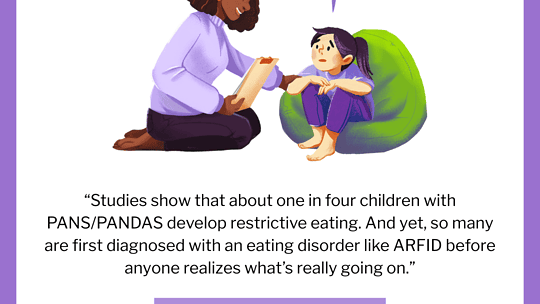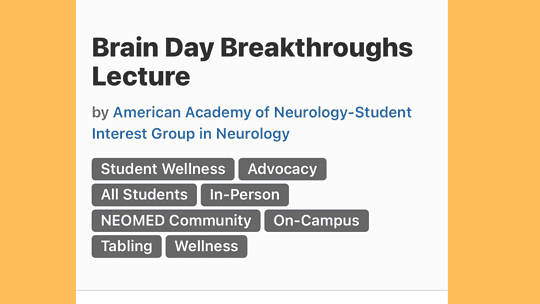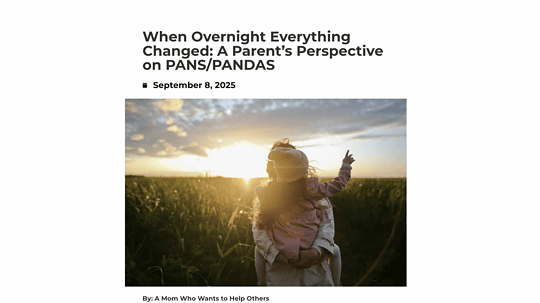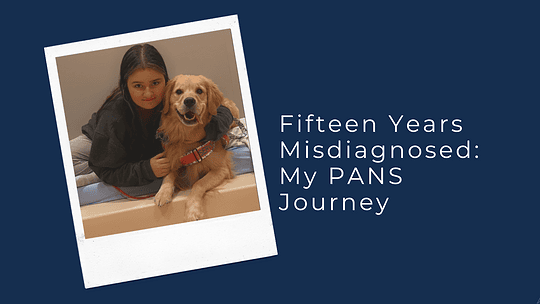
Something Doesn’t Feel Right: Evelyn’s PANDAS Story
Evelyn’s intrusive thoughts, rage, and vomiting fears were finally linked to strep and a PANDAS diagnosis. Evelyn’s challenges began early with fears of vomiting, panic attacks, aggression, and...

Evelyn’s intrusive thoughts, rage, and vomiting fears were finally linked to strep and a PANDAS diagnosis. Evelyn’s challenges began early with fears of vomiting, panic attacks, aggression, and...

Read more about one family’s story and what PANS/PANDAS really looks like, written by ANAD Community Member and ASPIRE’s Midwest Lead and Restricted Eating Lead, Breanne Failor One day, your...

🌟 PANDAS Awareness TX is hosting PANS/PANDAS Awareness Day at the Texas State Capitol! 🗓 Thursday, October 9, 2025 📍 Texas State Capitol, Room E1.016, Austin, TX The event will...

NEOMED Brain Day Events – October 8 & 9, 2025 🌿 Brain Day 5K Brisk Walk Wednesday, Oct 8 | 5–7 p.m. | NEOMED Courtyard | $10 Join a fun,...

Louisiana PANS PANDAS Action The Louisiana PANS PANDAS Action Committee (LPPA) is a newly formed group that is leading the charge for legislative change in the state to support those...

Sometimes what looks like an eating disorder is really a symptom of PANS/PANDAS. Too many families miss the real cause and go without the help their kids need. That’s why we’re so glad @F.E.A.S.T...

SB5 Passes! Bill SB 5 – Status Update Bill Language: Read PDF Note: Key details begin in Part II, Section 2-1 Passed: 04/04/2025 A BILL to be entitled an Act...

⚠️ Trigger Warning: This story contains references to self-harm, suicidal thoughts, and substance use. Mature audiences only. ⚠️ A young adult endured years of psychiatric hospitalizations,...
Strep throat is a common childhood illness, but in a few children this bacteria infection can lead to alarming, lasting changes in behaviour. Scientists are now starting to unravel how it affects the...

Current Legislative Action Please visit the MI PANS/PANDAS Alliance to stay updated on how you can take legislative action in Michigan. If you are a Michigan parent of a...